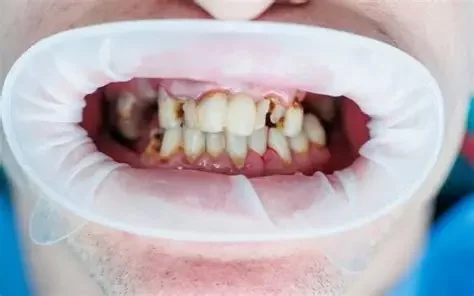
Understanding the Link Between Poor Oral Hygiene and Ulcers
Many people wonder if poor oral hygiene can cause ulcers, especially when they experience painful sores inside the mouth. While ulcers can develop for several reasons, neglecting oral care is one of the contributing factors. When bacteria build up due to lack of brushing, flossing, or professional cleanings, the tissues inside the mouth can become irritated, increasing the likelihood of ulcers or canker sores. These small but painful lesions can disrupt eating, speaking, and even sleeping, making oral health maintenance a critical part of prevention.
How Bacteria and Plaque Contribute to Ulcers
When oral hygiene routines are inconsistent, plaque accumulates along the gumline and teeth. This sticky film is filled with bacteria that release toxins, irritating the soft tissues of the mouth. Over time, this irritation can create tiny openings or worsen existing sensitivities, which may lead to the development of ulcers. For instance, a college student who skipped nightly brushing during exam week found himself battling recurring canker sores, proving how quickly poor habits can impact oral comfort and health.
Other Factors That Can Worsen Oral Ulcers
While poor hygiene plays a role, ulcers can also be influenced by other factors. Stress, diet, and accidental injuries from braces or biting the cheek are common triggers. However, poor oral hygiene worsens the severity and frequency of these ulcers because bacteria thrive in an unclean environment. Acidic foods or smoking can further irritate the tissues, prolonging the healing process. For individuals who already have weakened immunity or gum disease, neglecting oral care can turn minor sores into persistent problems.
The Impact on Overall Health
Mouth ulcers may seem small, but their impact extends beyond simple discomfort. When oral hygiene is ignored, ulcers can become infected, leading to swelling, pain, and even spreading bacteria into the bloodstream. This raises the risk of more serious health concerns, such as systemic inflammation or worsening of conditions like diabetes. Medical studies have consistently shown that oral health is directly linked to overall wellness, highlighting the importance of proactive care.
Real-Life Experiences with Oral Ulcers
Consider the story of a young professional who delayed dental visits for nearly two years. Alongside bleeding gums, she noticed frequent painful sores on the inside of her cheeks. After visiting a dentist, she learned that her lack of oral hygiene had allowed bacteria to thrive, creating the perfect environment for recurring ulcers. With treatment, improved brushing habits, and regular cleanings, the frequency of her ulcers decreased significantly. Her story is a reminder that consistent care makes a noticeable difference in daily comfort.
Preventing Ulcers Through Better Oral Hygiene
The best way to reduce the risk of ulcers caused by poor hygiene is to adopt a comprehensive oral care routine. This includes brushing twice a day with fluoride toothpaste, flossing daily to remove debris between teeth, and using an antibacterial mouthwash to reduce harmful bacteria. Drinking enough water, reducing sugary snacks, and avoiding tobacco also play a key role. Regular dental visits provide professional cleanings that eliminate plaque buildup and allow early detection of potential problems. Patients who take these steps not only reduce ulcer risk but also maintain fresh breath and a healthier smile.
When to Seek Professional Help
While minor ulcers often heal within one to two weeks, frequent or unusually painful sores should not be ignored. They may be a sign of underlying issues such as gum disease, vitamin deficiencies, or even more serious medical conditions. Dentists can provide targeted treatments like medicated rinses or topical gels to speed up healing. For anyone dealing with recurring ulcers linked to poor hygiene, consulting with a dental professional is the safest path toward lasting relief and prevention. Family Dentistry Online offers comprehensive resources and professional guidance to help you restore and maintain oral health.







 Arise Dental - Your Local Peoria Dentist4.0 (205 review)
Arise Dental - Your Local Peoria Dentist4.0 (205 review) Light Dental Studios of University Place4.0 (279 review)
Light Dental Studios of University Place4.0 (279 review) Dentists of South Pasadena4.0 (124 review)
Dentists of South Pasadena4.0 (124 review) Aurora Dental Care4.0 (153 review)
Aurora Dental Care4.0 (153 review) ClearChoice Dental Implant Center4.0 (383 review)
ClearChoice Dental Implant Center4.0 (383 review) Kansas City Dentures and Implants5.0 (15 review)
Kansas City Dentures and Implants5.0 (15 review) The Importance of Oral Health Education During Pregnancy for a Healthy Pregnancy
The Importance of Oral Health Education During Pregnancy for a Healthy Pregnancy Best Tips for Brushing Your Teeth Properly for Healthy Gums: Essential Techniques for Oral Health
Best Tips for Brushing Your Teeth Properly for Healthy Gums: Essential Techniques for Oral Health Why Skipping Dental Checkups Can Lead to Bigger Oral Health Problems
Why Skipping Dental Checkups Can Lead to Bigger Oral Health Problems Advantages of Porcelain Dental Restorations
Advantages of Porcelain Dental Restorations How Can Diabetes Cause Tooth and Gum Problems? Preventing and Managing Oral Health Issues
How Can Diabetes Cause Tooth and Gum Problems? Preventing and Managing Oral Health Issues Healthy Habits for Promoting Good Oral Health and Hygiene: Tips for a Healthy Smile
Healthy Habits for Promoting Good Oral Health and Hygiene: Tips for a Healthy Smile